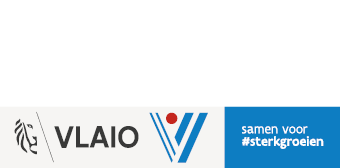GREENLOG
Cooperative and Interconnected Green delivery solutions
The GREENLOG project investigates new innovative methods for economically, socially and ecologically sustainable urban logistics. In this project, the main focus is on better cooperation between all players that are part of the urban logistics ecosystem. Within Flanders, the cities of Ghent, Leuven and Mechelen are joining forces to organize one large “Flanders Living Lab” in which experiments will be conducted with the implementation of a LaaS (“Logistics as a Service”) platform to connect the various players within urban logistics.
status: Running |
theme:
Green Supply Chains, Last mile |
type:
European
This Horizon Europe project GREENLOG aims to make the urban logistics ecosystem sustainable, taking into account economic, ecological and social aspects. Various ideas are being combined and tested in this process. Some of these ideas are: cargo bikes, parcel deliveries combined with public transport and autonomous vehicles.
This project will be implemented in 5 cities or regions: Athens, Barcelona, Flanders, Oxfordshire, and Ispra. It is crucial to evaluate whether the proposed solutions will work effectively in other cities. Therefore, the project will be trialed in collaboration with 3 different cities: Arad (Romania), Helsingborg (Sweden), and Valga (Estonia).
Moreover, the project aims to engage all stakeholders in urban logistics (consumers, city government, transporters, etc.) in each participating city. This will facilitate the exchange of ideas and cooperation between the public and private sectors.
The Flemish Living Lab
The Flemish pilot project consists of testing an innovative Logistics-as-a-Service platform in three cities: Ghent, Mechelen and Leuven. Although the three cities are unique, they share the conviction to introduce low/zero emission zones for urban freight transport. The cities want to help players in the urban logistics chain with these intrusive measures, by connecting them with sustainable alternative delivery options.
The challenge
The following challenges are defined for the Flemish pilot project:
- Implement the use of a unified LaaS platform across cities with the ability to integrate their own policies and business rules, the methodology of which is transferable to other cities
- Propose more sustainable, data-driven alternative delivery options to stakeholders
- Figuring out how to motivate the use of these alternatives, with a toolkit for formatting incentives and policies
The goal
The project will develop and implement a Logistics-as-a-Service platform, where data on city logistics will be used to link supply and demand.
Furthermore, a transferable manual will also be created to implement a functional LaaS platform at cities. That both connects logistics supply and demand and also enables different levels of policy control.
Practical details
Start: January 2023
Total lead time: 42 months
Would you like to know more?
Contact Michiel Bertels (michiel.bertels@vil.be)





